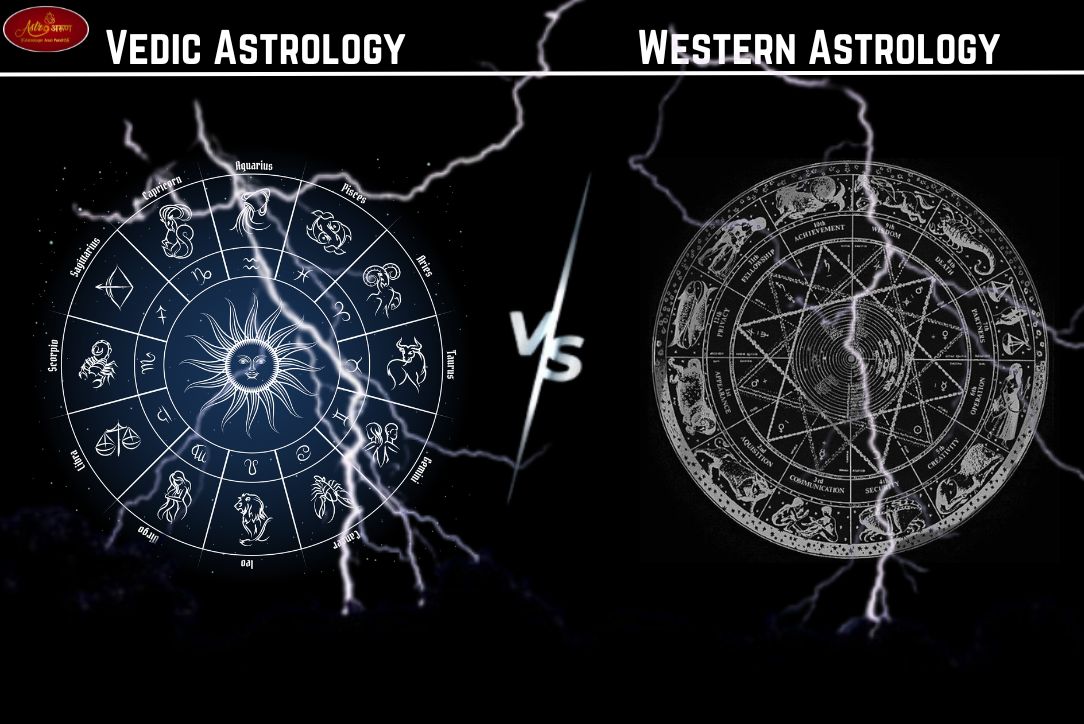Astrology has fascinated humanity for centuries. Two of the most prominent systems are Vedic Astrology and Western Astrology. Both have unique approaches and cultural roots, but they aim to help people understand themselves and their life paths. Let’s explore the key differences between these two systems.
Astrology seeks to connect human experiences with the cosmos. While Vedic Astrology stems from ancient Indian traditions, Western Astrology originates in ancient Greece and Rome. Understanding their differences can help you decide which system resonates with your beliefs.
Origins and History
Vedic Astrology, also called Jyotish, originated over 5,000 years ago in India. It is deeply rooted in the Vedas, ancient Hindu scriptures. Western Astrology began around 2,000 years ago in Mesopotamia and developed further in Greece and Rome. Vedic Astrology emphasizes spiritual growth, while Western Astrology focuses on personality and psychological traits.
Basis of Calculations
Vedic Astrology uses the sidereal zodiac, which aligns with the actual positions of stars and constellations. In contrast, Western Astrology relies on the tropical zodiac, based on the Earth’s seasons. The sidereal zodiac reflects fixed star positions, while the tropical zodiac shifts due to the Earth’s axial precession.
| Aspect | Vedic Astrology | Western Astrology |
| System Basis | Sidereal Zodiac (positions of fixed stars) | Tropical Zodiac (relationship to seasons) |
| Primary Focus | Predictive (future events and karma) | Psychological (personal traits and growth) |
| Planetary Rulers | Includes Rahu and Ketu (shadow planets) | Excludes Rahu and Ketu |
| Zodiac Signs | Based on actual constellations | Symbolic alignment with Earth’s seasons |
| Time Measurement | Moon and Nakshatras (Lunar Mansions) | Sun and Solar Calendar |
| Chart Construction | Square-shaped charts | Circular charts |
| Personal Connection | More personalized with precise planetary positions | Less personalized due to seasonal adjustments |
| Remedies | Focuses on karmic remedies (mantras, gems) | Suggests psychological growth and reflection |
| Accuracy in Predictions | Known for detailed predictions | Emphasis on personality and tendencies |
| Cultural Roots | Deeply rooted in Indian spiritual traditions | Linked to Greek mythology and philosophy |
1. Zodiac System
The two systems divide the sky into 12 zodiac signs. However, the signs in Vedic Astrology are slightly different because of the sidereal method. For instance, your sun sign in Western Astrology might be Aries, but in Vedic Astrology, it could be Pisces due to a 24-degree difference between the two zodiacs.
2. Planetary Influence
Both systems consider planets’ positions crucial, but Vedic Astrology includes additional celestial points, like Rahu (North Node) and Ketu (South Node), to provide deeper insights. Western Astrology primarily focuses on planets and their aspects.
3. Predictive Methods
Vedic Astrology specializes in predictions through tools like Dashas (planetary periods) and transits. These methods offer detailed timelines for events in your life. Western Astrology emphasizes psychological analysis and uses techniques like solar returns and progressed charts for future insights.
4. Approach to Remedies
Vedic Astrology often prescribes remedies, such as chanting mantras, wearing gemstones, or performing rituals, to mitigate negative planetary effects. Western Astrology usually focuses on self-awareness and does not emphasize remedies as much.
5. Cultural Relevance
Vedic Astrology remains a vital part of Indian culture, influencing major decisions like marriage and career choices. Western Astrology has gained global popularity for its focus on self-discovery and is often found in horoscopes and personality analyses.
Which One Should You Choose?
The choice depends on your goals. Vedic Astrology might be your answer if you seek spiritual growth and practical remedies. For personality insights and psychological understanding, Western Astrology could be more suitable. Both systems offer valuable perspectives, so you can explore both to see which resonates with you.
Conclusion
Vedic and Western Astrology have unique approaches and benefits. While Vedic Astrology provides detailed predictions and remedies, Western Astrology emphasizes self-awareness and personal growth. Understanding these differences can help you make an informed choice. Explore both systems to unlock the mysteries of your life through the stars.
FAQs
1) What is the main difference between Vedic and Western Astrology?
Vedic astrology uses the sidereal zodiac, focusing on the Moon sign, while Western astrology uses the tropical zodiac, emphasizing the Sun sign.
2) Can both systems provide accurate predictions?
Yes, each system offers valuable insights; Vedic astrology excels in timing events, while Western astrology delves into personality.
3) Which astrology system should I follow?
Choose based on your needs: Vedic for precision and life events, Western for personal growth and psychology.
4) How do I get my Vedic or Western chart analyzed?
Consult a professional astrologer or use reputable online tools.
5) Are the two astrology systems compatible?
Many modern astrologers integrate both systems for a comprehensive understanding.








